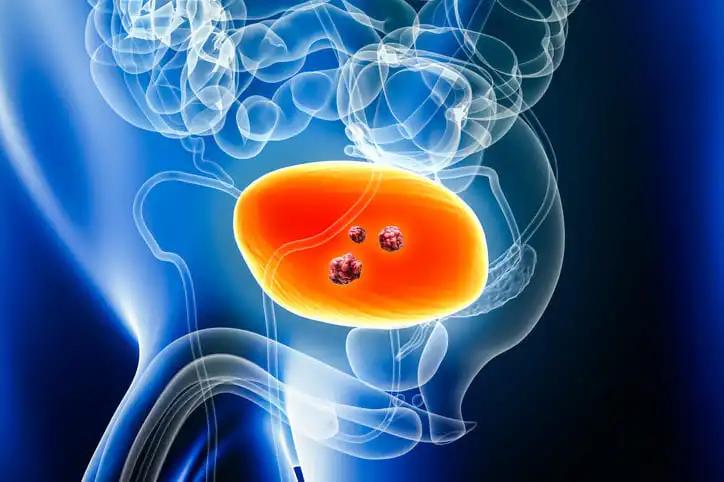KEY TAKEAWAYS
- The phase 3 KEYNOTE-676 trial aims to investigate the efficacy and safety of pembrolizumab + BCG versus BCG monotherapy in patients with (HR NMIBC).
- The study’s primary aim is to evaluate (EFS).
- Disease status will be assessed by cystoscopy, urine cytology, and biopsy every 12 weeks through year 2, then every 24 weeks through year 5, with imaging every 72 weeks.
- Secondary endpoints include complete response rate, duration of response, disease-specific survival, time to cystectomy, and overall survival.
- AEs will be monitored throughout the study and up to 30 days after cessation of study treatment.
Pembrolizumab monotherapy showed effective antitumor activity and acceptable safety in patients with BCG-unresponsive HR NMIBC with carcinoma in situ (CIS ), according to results from Cohort A of phase 2 KEYNOTE-057 study. It is possible that pembrolizumab combined with BCG in the treatment of early-stage HR NMIBC would be more effective than BCG alone. Patients with persistent or recurrent HR NMIBC following BCG induction will be enrolled in Cohort A of the open-label, comparator-controlled, phase 3 KEYNOTE-676 study (NCT03711032) to examine the efficacy and safety of pembrolizumab + BCG versus BCG monotherapy in patients with HR NMIBC. Patients who have never received BCG treatment or who received BCG treatment > 2 years before enrollment will be eligible for Cohort B. This new, randomly assigned cohort will aid in evaluating pembrolizumab + BCG.
Cohort B of KEYNOTE-676 will enroll approximately 975 patients with BICR-confirmed HR NMIBC (T1, high-grade Ta CIS) and Eastern Cooperative Oncology Group performance status 0-2 who underwent cystoscopy/transurethral resection of bladder tumor 12 weeks before randomization and had not received BCG within the past 2 years. Pembrolizumab 400 mg IV Q6W + BCG reduced maintenance (≤6 months), pembrolizumab 400 mg IV Q6W + BCG complete maintenance (≤18 months), or BCG monotherapy will be randomly assigned to patients in a 1:1:1 ratio (BCG complete maintenance). Central laboratory evaluation of PD-L1 expression and NMIBC stage (CIS or no CIS) are used as stratification expression (combined positive score [CPS] ≥10 or CPS < 10) factors. Cystoscopy, urine cytology, and biopsy (if necessary) will be used to monitor disease progression every 12 weeks (Q12W) for the first 2 years, then every 24 weeks (Q24W) for years 3 through 5; computed tomography urography (CT-urography) will be performed every 72 weeks. Adverse events (AEs) will be tracked from the beginning of the study until 30 days after treatment ends (90 days of severe AEs). Event-free survival (EFS)l is the primary measure of success. Complete response by BICR, duration of response(DOR), DOR at 12 months (CIS only), EFS at 24 months, disease-specific survival, time to cystectomy, overall survival, and safety are secondary endpoints. Research centers in Asia, Australia, Europe, North America, and South America are currently enrolling participants or will begin soon.
Source: https://meetings.asco.org/abstracts-presentations/205333
Clinical Trial: https://clinicaltrials.gov/ct2/show/NCT03711032
Ashish M. Kamat, Shahrokh Shariat, Gary D. Steinberg, Shaheen Riadh Alanee, Hiroyuki Nishiyama, Kijoeng Nam, Ekta Kapadia, Neal D. Shore, Noah M. Hahn/Randomized comparator-controlled study evaluating efficacy and safety of pembrolizumab plus Bacillus Calmette-Guérin (BCG) in patients with high-risk nonmuscle-invasive bladder cancer (HR NMIBC): KEYNOTE-676 cohort B./J Clin Oncol 40, 2022 (suppl 6; abstr TPS597)DOI 10.1200/JCO.2022.40.6_suppl.TPS597



